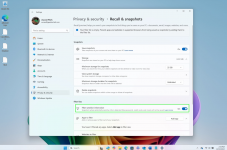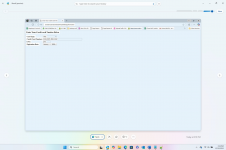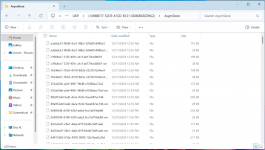Fixxx
Moder
- Joined
- 20.08.24
- Messages
- 1,041
- Reaction score
- 4,023
- Points
- 113
Microsoft is once again testing the Recall feature, which was previously delayed due to privacy and security concerns. Currently, Recall is only available to participants in the Windows Insiders program, but users have already noticed issues: the feature saves credit card numbers, Social Security numbers, and other sensitive information, even when this is prohibited. Recall was introduced in May 2024 and is designed to help users "remember" any information they viewed in the past, making it accessible through a simple search. Recall, which was intended to be enabled by default on all new Copilot+ PCs, takes snapshots of the active window on the screen every few seconds, recording everything happening in Windows, whether it's browsing websites, chatting in a messenger, or working with other applications. The captured snapshots are processed by the device's Neural Processing Unit (NPU) and an AI model to extract data from the screenshots. The information is then stored in a database, allowing users to search their history using queries in their native language.
Immediately after the announcement, Recall faced harsh criticism from both cybersecurity experts and privacy advocates. Specialists compared the feature to a keylogger and demonstrated that it could be used to steal data. In response to this criticism, Microsoft postponed the launch of Recall and stated that it would ensure additional security by making the feature optional and encrypting the database so that it would be inaccessible until the user authenticates using Windows Hello. According to Tom's Hardware, Recall has recently become available again to Windows Insiders. Now, the feature is supposed to encrypt data and comes with a default active setting called Filter Sensitive Information, which is designed to block the recording of any applications and websites where credit card numbers, Social Security numbers, and other financial and personal information may appear. However, journalists found that this filter does not always work effectively.
However, the new Microsoft feature refused to capture credit card data when navigating to the payment pages of two online stores - Pimoroni and Adafruit. This indicates that the filter did work for actual commercial sites.
When the publication reached out for comments from Microsoft representatives, the company responded with a link to a blog post about Recall. It stated that developers "continue to improve this feature," and if confidential information that should be filtered is detected, users are encouraged to report it through the Feedback Hub. Piltch noted that the data captured by Recall is now indeed encrypted), and access to it requires authentication via Windows Hello. According to him, screenshots are saved in a subfolder called AsymStore, and they could not be opened as PNG, BMP, or JPG files.
Immediately after the announcement, Recall faced harsh criticism from both cybersecurity experts and privacy advocates. Specialists compared the feature to a keylogger and demonstrated that it could be used to steal data. In response to this criticism, Microsoft postponed the launch of Recall and stated that it would ensure additional security by making the feature optional and encrypting the database so that it would be inaccessible until the user authenticates using Windows Hello. According to Tom's Hardware, Recall has recently become available again to Windows Insiders. Now, the feature is supposed to encrypt data and comes with a default active setting called Filter Sensitive Information, which is designed to block the recording of any applications and websites where credit card numbers, Social Security numbers, and other financial and personal information may appear. However, journalists found that this filter does not always work effectively.
For instance, Recall successfully captured text from a Notepad file containing a random username, password, and credit card number, even though the name of the bank and payment system ("Capital One Visa") was written nearby. Similarly, Recall ignored the settings and captured data from a completed credit application in PDF format opened in Microsoft Edge. The document contained a Social Security number, name, and date of birth. Creating a simple HTML page that explicitly stated "Enter your credit card number" and included fields for entering the card number, CVC code, and expiration date did not trigger the filter either. Recall successfully captured and saved all the data entered in the form.However, the new Microsoft feature refused to capture credit card data when navigating to the payment pages of two online stores - Pimoroni and Adafruit. This indicates that the filter did work for actual commercial sites.
"This means that when it came to real commercial sites, Recall did everything right. However, my experiment shows that for Microsoft's AI filter, it is nearly impossible to identify all situations where sensitive information appears on the screen and avoid capturing it. My examples were designed to test the filter, but they are not rare cases. People do indeed enter sensitive personal information into PDF forms. They write, copy, and paste data into text files, and then enter it on sites that do not resemble typical store websites", said Avram Piltch, editor-in-chief of Tom's Hardware.
When the publication reached out for comments from Microsoft representatives, the company responded with a link to a blog post about Recall. It stated that developers "continue to improve this feature," and if confidential information that should be filtered is detected, users are encouraged to report it through the Feedback Hub. Piltch noted that the data captured by Recall is now indeed encrypted), and access to it requires authentication via Windows Hello. According to him, screenshots are saved in a subfolder called AsymStore, and they could not be opened as PNG, BMP, or JPG files.
"Perhaps hackers will figure out how to open these files, but as far as I can tell, the average user will not be able to open them outside of the Recall application", Piltch concluded.




